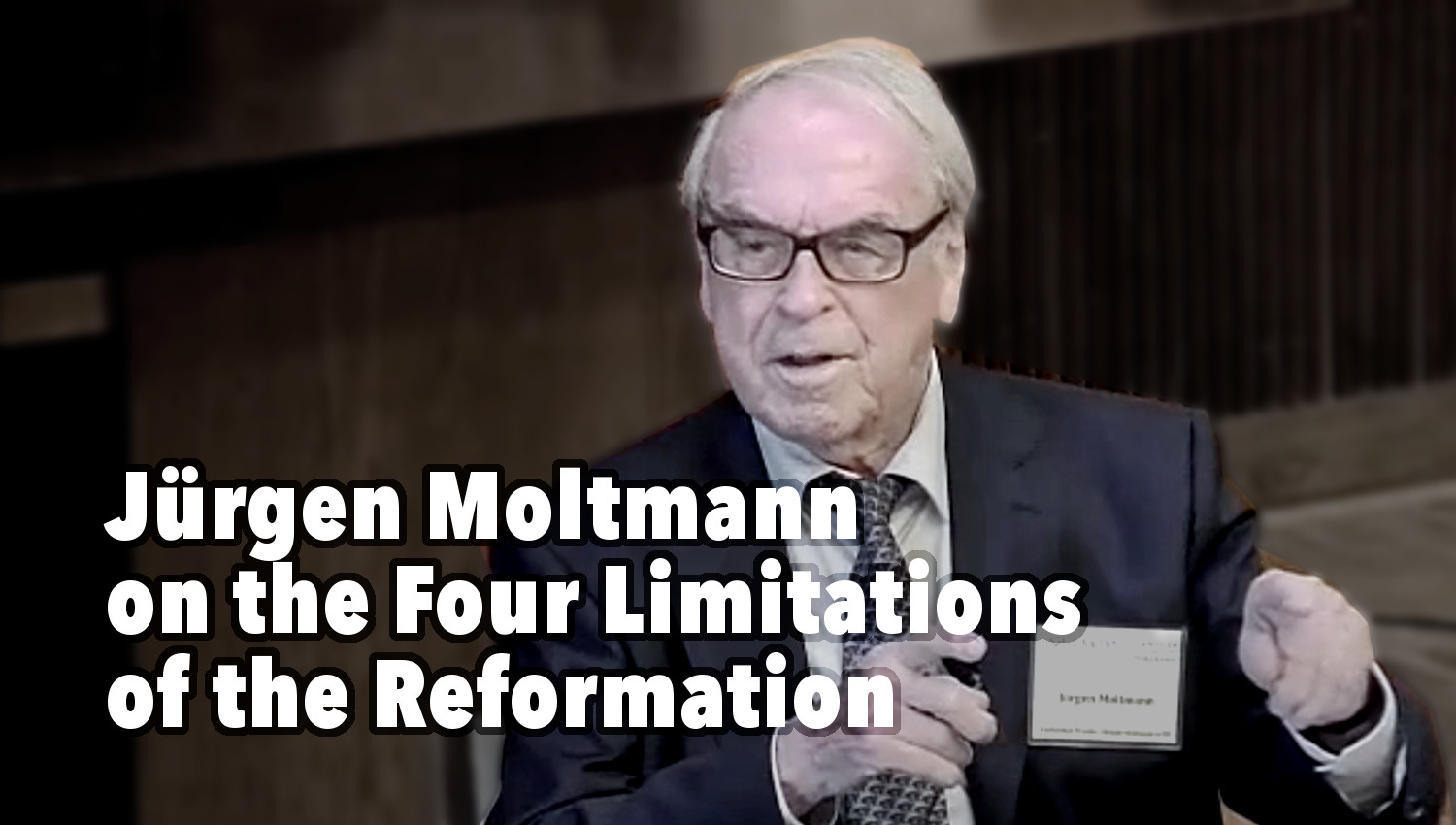
It is important to see the limits of the Reformation in the 16th century, in order to go beyond its limits. Jürgen Moltmann outlined four limits of the Protestant Reformation at the Unfinished Worlds conference in 2016. Even though the 500th anniversary of the Reformation is behind us now, it is still crucial that we reconsider the Reformation of the 16th century, and complete what was not finished. I heard this lecture (in person), and have discussed what Moltmann said about the Anabaptists already, and Moltmann explains the other points in the lecture (hear the one hour mark).
Moltmann listed four limitations of the Protestant Reformation that remain to be broken in this lecture. I was present to hear Moltmann's lecture, and here's my transcription of his four points:
First, the Reformation only happened in the Latin churches of the West. The Orthodox churches of the East were totally untouched by Reformation ideas.
Second, the Reformation happened only in the conditions and traditions of the Holy Roman Empire of the German nation. Since the crowning of Charlemagne in 800 by the Pope in Rome, there has been a split in the Holy Roman Empire between two caesars: one in Byzantium and the other in Franconia.
Third, the Constantinian turn of affairs has changed the Christian church into state religions of the Holy Empire, and the Holy Empire into the kingdom of Christ, the Millennium. The Reformers, Zwingli, Luther and Calvin remained inside of this corpus christianeum. Only, the Anabaptists, crossed over the limits and were persecuted because of imperial laws.
Fourth, the 16th century Reformation, as the name implies, was related to an already existing church and state, not to a Christianity of the future. It was a reformation of faith and not of hope. It was a re-formation, not a formation of the mission of the church in the world, in the name of the kingdom of God.
Finally, we may ask what were the future expectations in Luther and Melanchthon's time in Wittenberg. We have a very clear picture in Luther's last book, supputatio annorum mundi (Counting the Years of the World) of 1545 because the Wittenberg reformers remained in the Holy Empire and accepted its laws and they agreed also on the place of this empire in this world chronicle and the apocalyptic outlaw.
Sources:
n.b. I personally transcribed the above quotation from Moltmann's lecture at the Unfinished Worlds Conference in 2016 at Emory. (The full lecture is available online).



Leave a comment